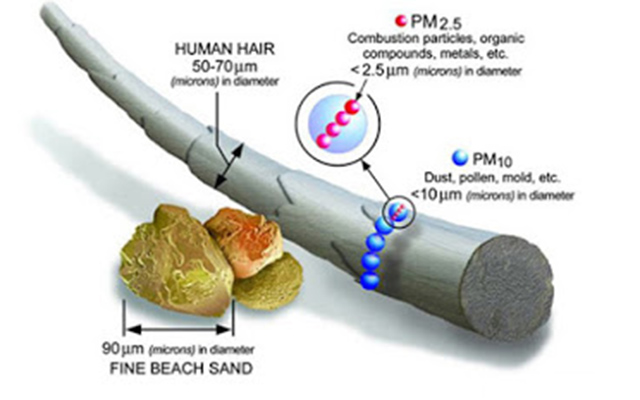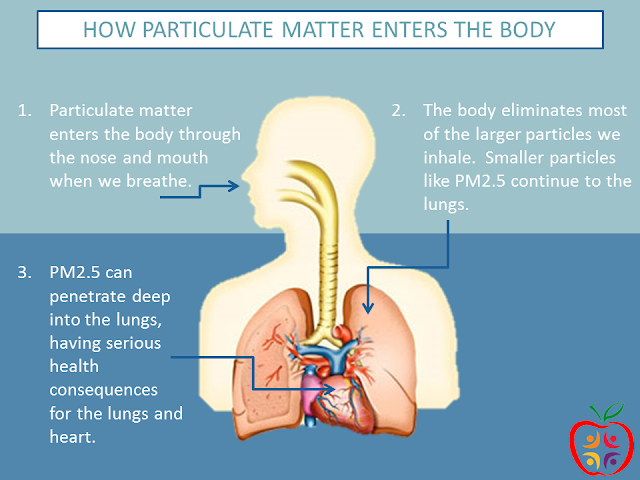
Managing air pollution in Washington can be tricky during the winter. Many people heat their homes with wood stoves and fireplaces but the particle pollution from burning wood can reach unhealthy levels. This was a challenge for Pierce County in recent years but Ecology, Puget Sound Clean Air Agency, and the community worked to overcome the issue.
The problem
Particle pollution is a mixture of tiny solids that come from wood stoves, vehicles, dust, and more. It is harmful to your health when breathed in and one of the most serious air quality problems in Pierce County, WA.
Prior to 2015 Pierce County had serious air quality problems. It was the only area of the state to be in “non-attainment.” This means the area failed to meet the National Ambient Air Quality Standards (NAAQS) set by the Environmental Protection Agency (EPA). Because of this, Puget Sound Clean Air Agency worked with Ecology to develop more protective regulations to help residents improve their air quality.
The area came into compliance with the NAAQS in 2015 after significant efforts to reduce wood smoke. It is now considered to be a “maintenance area” and is following the first of two required 10-year plans to maintain healthy air quality. Today, all areas of Washington meet the NAAQS set by the EPA therefore are considered in “attainment.”
The effects of particle pollution
Children are at high risk because their lungs are still growing and they spend more time at high activity levels. Exercise and physical activity cause people to breathe faster and more deeply, taking more particles into their lungs.
Even if you’re healthy, you may experience temporary symptoms, such as irritation of the eyes, nose, throat, and respiratory system.
What we are doing
In order to protect health and the economy, Ecology and Puget Sound Clean Air Agency monitor particle pollution to ensure it doesn't reach harmful levels again. They have developed tools to reduce pollution levels, such as:
- Grants
- Wood stove replacement programs
- Uncertified wood stove recycle programs
- Earlier burn bans and alerts
In 2013—15, Ecology awarded $4 million in grant money to seven communities that are most vulnerable to violating national air pollution standards. Since then over 3,500 uncertified wood stoves have been changed out or replaced in high-risk communities. That number is expected to climb to 4,000 by the end of 2017. Many participants in the programs cite the Puget Sound Clean Air Agency’s uncertified wood stove removal rule as a motivator for their participation.
Another successful strategy has been calling for burn restrictions and public alerts earlier. This is accomplished by sending emails, text messages, using social media, and posting notices on websites. As a result of these efforts, the public now has a better understanding of the potential health effects and is being proactive.
Pierce County is still of high concern and is being watched closely. If it falls into non-attainment status again the consequences could include:
- New businesses would be less attracted to the area.
- High costs to clean up the pollution and prevent future recurrences.
- Stigma of being the only community in the state that did not meet the NAAQS.
- Citizen health could be at risk when exposed to high levels of pollution.
Although progress has been made, many communities are still at high risk of violating federal standards. We will continue to monitor this area closely to protect public health.



